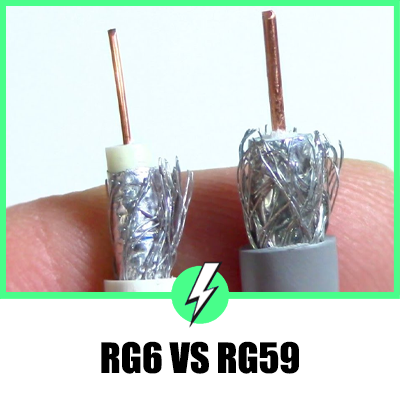How to Start a Successful Electrician Business
Thinking about starting your own electrician business?
You’re not alone. Many skilled electricians dream of running their own company, but the path from skilled worker to successful business owner isn’t always clear. That’s where we step in.
Well, we’ll be going over:
- What do you need to get started?
- How can you set your business apart from the competition?
- What are the key steps to ensure your business thrives in the long term?
Let’s dive in.

Contents
Research and Planning
Before diving into the world of electrical services, it’s crucial to conduct thorough research and planning.
Understanding the market demands, potential customer base, and competition levels in your area can set the foundation for a successful electrician business.
Start by identifying the types of electrical services in high demand and consider specializing to stand out.
Evaluating the existing competition is equally imperative. Analyze their services, pricing, and marketing strategies. Look for gaps that your business could fill. This insight will guide you in positioning your electrician business in a unique spot within the market.
Developing a solid business plan is the next step. It should detail your business goals, strategies for achieving them, financial projections, and marketing plans.
Remember, a well-thought-out business plan is not only a roadmap for success but also essential for securing financing if needed.
Obtaining the Necessary Licenses and Certifications
Before you can start your electrician business, it’s crucial to secure all necessary licenses and certifications. This is not just about compliance; it’s about establishing credibility and trust with your potential clients.
Each state has its own set of requirements, so you’ll need to check with your state’s licensing board for specifics.
Generally, you’ll start with an electrician’s apprenticeship, followed by becoming a journeyman, and eventually, with enough experience and additional testing, you can obtain a master electrician license.
Additionally, consider getting certified in specialized areas. This could range from commercial to industrial electrical work, which can make your business stand out.
Certifications in green energy installations or smart home technology are becoming more sought after and can open new avenues for your business.
Remember, the process of obtaining licenses and certifications can take time, so it’s best to start as early as possible.
This will not only ensure that you’re legally compliant but also enhance your marketability to potential clients.
Setting up Your Business Structure
When starting an electrician business, choosing the right business structure is crucial for your operation’s efficiency and legal protection. You’ve got several options: sole proprietorship, partnership, limited liability company (LLC), or corporation.
Each has its pros and cons dependent on liability protection, tax implications, and operational flexibility.
If you’re starting small, a sole proprietorship may seem appealing due to its simplicity and direct control. However, for better liability protection and potential tax benefits, consider forming an LLC.
This structure can shield your personal assets from business debts and lawsuits, providing a safety net.
In contrast, if you’re planning on rapid expansion or seeking external investors, a corporation might suit your needs.
Although it comes with more regulatory requirements and complex setup procedures, it offers the greatest personal liability protection and easier access to capital.
To make the best choice, consult with a business attorney or accountant. They can provide tailored advice based on your business plan and goals.
Remember, the structure you choose will affect every aspect of your business, from daily operations to taxes to how much of your personal assets are at risk.
Creating a Business Plan
When starting your electrician business, crafting a detailed business plan is a step you can’t afford to skip. This document will be your roadmap, outlining your business goals, strategies, financial projections, and marketing plans.
It’s not only essential for guiding your business to success but also critical if you’re seeking financing or investors.
First, identify your target market and dive into the services you’ll offer. Whether it’s residential, commercial, or specialized fields like green energy, understanding your niche is crucial. Next, outline your marketing strategy.
How will you reach your customers? What unique value do you bring? Digital marketing, including SEO and social media, can be powerful tools to connect with potential clients.
Then, tackle the financial aspects. Estimate your startup costs, from necessary tools and equipment to licensing fees. Drafting realistic financial projections for at least the first year will help you assess the viability of your business.
Remember, transparency and realism in your financial plan can make or break your business’s success.
Building a Strong Online Presence
In today’s digital age, having a strong online presence is non-negotiable for your electrician business. Your potential customers are online, searching for the services you offer, so you need to be where they can find you.
First, start with a professional website. Your website is your digital storefront, and it should be as professional and polished as your services are.
It’s also crucial that your site is mobile-friendly, as a significant portion of online searches are done on mobile devices.
Social media platforms offer another powerful avenue to connect with your audience. Platforms like Facebook, Instagram, and LinkedIn not only allow you to showcase your services and projects but also to engage directly with customers and build relationships.
Post regularly, and don’t forget to engage with comments and messages to boost your visibility.
Lastly, consider investing in search engine optimization (SEO). By optimizing your website and content for relevant keywords, you’ll improve your chances of appearing at the top of search results when potential customers are searching for electrician services.
This enhanced visibility leads to more traffic to your website and, ultimately, more customer conversions.
Developing a Marketing Strategy
When kicking off your electrician business, devising a sound marketing strategy is crucial. You’re not just selling services; you’re offering reliability and expertise.
Initially, identify your target market. Is it homeowners, businesses, or perhaps a niche market like green energy installations? Understanding your audience shapes your messaging and marketing channels.
Leverage digital marketing to reach wider audiences. Create a sleek, user-friendly website and optimize it for search engines. This isn’t just about looking professional; it’s about being found.
Incorporate keywords related to electrical services that potential clients might use in their online search queries.
Social media platforms are invaluable tools. Use them to showcase recent projects, share customer testimonials, and provide useful electrical safety tips.
This approach doesn’t just market your services; it also positions you as an industry expert.
Remember, a successful marketing strategy is ever-evolving. Analyze the effectiveness of different channels and adjust your approach based on what drives the most engagement and leads.
This kind of adaptability ensures your marketing efforts are always aligned with your business goals.
Building a Network of Clients and Referrals
Building a strong network of clients and referrals is crucial for the long-term success of your electrician business. Starting with quality service is key, but there’s more to it than just that.
Engaging with local communities and providing exceptional customer service can set you apart and encourage word-of-mouth referrals.
Leverage every job as an opportunity to impress and exceed expectations. Happy clients are more likely to recommend your services to friends, family, and colleagues.
Additionally, consider offering incentives for referrals, such as discounts on future services, which can motivate your clients to spread the word about your business.
Networking events and local business associations can also be fruitful grounds for building professional relationships that lead to referrals. Remember, your reputation is your most valuable asset in the electrical services industry.
Keep honing your skills and upgrading your knowledge to stay relevant and in demand.
Hiring and Managing Employees
When you’re ready to expand your electrician business, hiring the right team is paramount. Your employees are the face of your business, and their work directly reflects on you.
Begin by identifying the skills and certifications necessary for your business, focusing on both technical expertise and customer service abilities.
Crafting detailed job descriptions that outline these requirements is crucial for attracting qualified candidates.
Once you’ve assembled your team, effective management becomes key to your business’s success. Implementing regular training programs ensures your employees are up-to-date with the latest electrical codes and technologies.
This not only improves service quality but also boosts team morale by investing in their professional growth. Additionally, establish clear communication channels and foster a culture of feedback.
This lets your team know their opinions are valued, leading to higher job satisfaction and retention rates.
Remember, the right mix of skills, certifications, and personal attributes makes a valuable employee.
Prioritize these in your hiring process, and you’ll build a team that contributes to your business’s success and reputation in the long term.
Managing Finances and Accounting
Starting an electrician business requires a keen eye on finances from the get-go.
You’ll need to establish a system for managing your finances that includes setting up a business bank account, tracking expenses, and understanding the flow of money in and out of your business.
Keeping accurate records is crucial for assessing the financial health of your business and is required for tax purposes.
To ensure you’re on top of your financial game, consider using accounting software designed for small businesses.
This technology can simplify the process of tracking expenses, invoicing clients, and preparing financial statements. Moreover, don’t shy away from seeking professional advice.
Hiring a bookkeeper or accountant, even on a part-time basis, can save you from potential fiscal headaches and help optimize your tax obligations, allowing you to focus more on growing your business.
Budgeting also plays a key role. Forecasting your finances allows you to anticipate cash flow issues and adjust your spending accordingly.
Keeping a close eye on your budget ensures you have enough funds to cover future expenses, invest in new tools or technologies, and mitigate the risk of financial surprises that could hinder your business’s growth.
Providing Excellent Customer Service
In the competitive electrician business landscape, customer service can set you apart. It’s not just about fixing electrical issues but creating a memorable experience for your clients.
From the moment they reach out for a service inquiry, your response time, attitude, and the clarity of information provided can make a significant impact.
Remember, a satisfied customer is more likely to return and recommend your services to others.
Prioritize communication by keeping your clients informed about the status of their projects and any changes that occur.
Consider implementing a system for scheduling and tracking service calls, ensuring that appointments are kept and on time. Transparency in pricing and services offered also plays a crucial role in building trust with your customers.
Training your team to handle inquiries with professionalism and empathy further elevates your customer service. It’s essential to listen to customer feedback and take action to improve their experience continuously.
This proactive approach not only enhances customer satisfaction but also boosts your business’s reputation in the long run.
Conclusion
Embarking on the journey to start your electrician business is an exciting venture that demands dedication, strategic planning, and a focus on excellence.
Remember, the key to your success lies in thorough market research, a robust business plan, and obtaining the necessary licenses and certifications. Don’t underestimate the power of specializing to set your business apart in a crowded marketplace.
Your online presence, from a professional website to active social media engagement, plays a crucial role in reaching and expanding your customer base. Building a strong network through quality service and leveraging client referrals will significantly contribute to your business’s growth.
As you plan to expand, hiring the right team and managing your finances effectively will ensure your business’s long-term sustainability. Above all, prioritizing exceptional customer service will keep your clients coming back and help you build a reputable electrician business.
With these strategies in mind, you’re well on your way to powering up your entrepreneurial dreams and illuminating the path to success.





